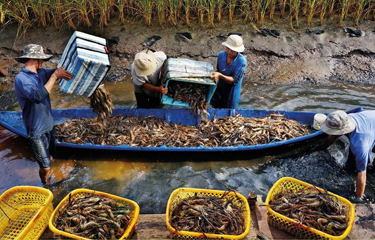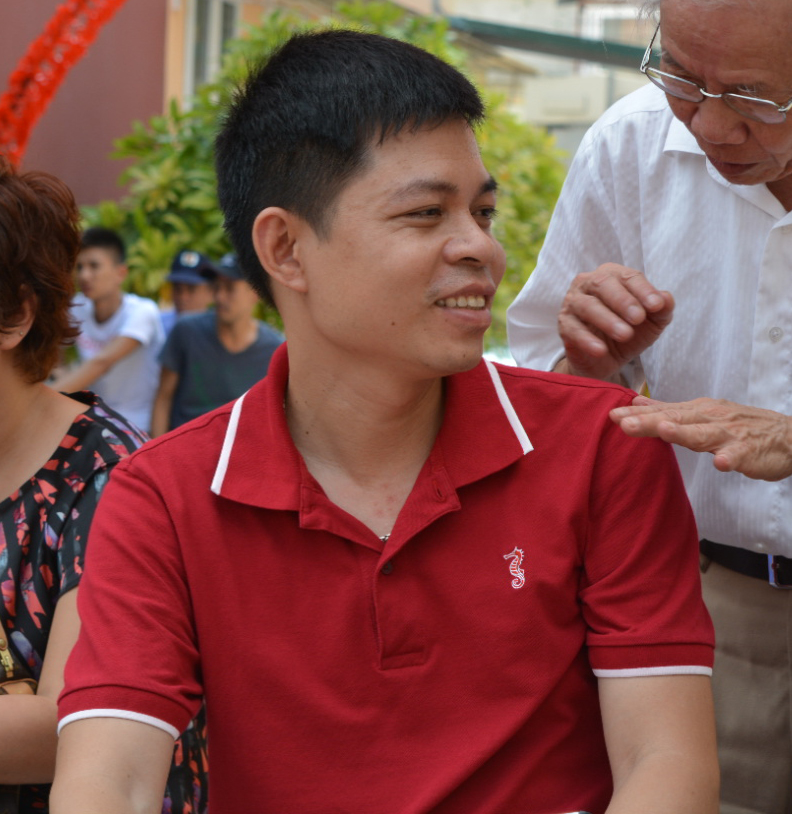Minh Phu partnering with WWF, DFCD on trial combining rice and shrimp farming

Vietnam’s top shrimp producer, Minh Phu Seafood, has partnered with the World Wide Fund for Nature (WWF) and the Dutch Fund for Climate and Development (DFCD) to implement a project that combines rice and shrimp farming in the Mekong Delta region.
The Mekong Delta Integrated Rice and Aquaculture Project is aimed at mitigating climate-change impacts in Vietnam’s most fertile region for agriculture and aquaculture. The project also has the goal of aiding local farmers, according to a statement from Minh Phu.
Under the partnership, WWF and DFCD have granted Minh Phu EUR 350,000 (USD 416,600) for a trial rice-shrimp farming project on 11 hectares in Ca Mau Province, with 60 local farmers participating in the trial project. The trial will begin in August and last for one year.
Minh Phu is seeking a 10-year loan worth EUR 35 million (USD 41.7 million) to implement the full project by the second quarter of 2022, if the test run proves successful. The company plans to increase its total integrated rice-shrimp farming area to 30,000 hectares by 2028 and to a million hectares in later phases of the project.
Provincial governments of three provinces in the Mekong Delta and Dutch research organization Deltares are also partnering on the project. Their additional contributions will increase the project’s budget to EUR 800,000 (USD 952,400).
Traditionally, rice and shrimp farming are separated in the Mekong Delta. Under the new model, farmers will create rice-shrimp aquaculture ponds where rice and fresh-water shrimp will be produced during rainy seasons, while brackish-water shrimp will be grown during dry seasons and at times when salt-water intrusion takes place.
The Mekong Delta provides a large share of Vietnam’s rice and seafood output. In recent years, however, the region has been facing droughts, saltwater intrusion, and other environmental and economic problems resulting from human activity. Rice paddies and aquaculture ponds in the delta are often flooded by water that contains chemicals and low levels of nutrients and sediment. The project will help restore the natural sedimentation process, through which rice-shrimp ponds will be naturally fertilized by shrimp manure and healthy flood-borne sediment arriving from rivers during the rainy season. Clean water from the rivers will be supplied through intake channels, while water from the ponds will be discharged through other channels. To replace chemical treatments of the ponds, the project will incorporate the use of probiotics. Farmers committed to the project will receive training and technical assistance to operate their own ponds. Minh Phu will assist them by providing premium-free pre-financing for their inputs.
Farmers participating in the project are expected to produce 3.7 times as much shrimp – an increase from 214 kilograms per hectare to 800 kilogram per hectare annually. The project is expected to generate 3.5 times more income for the farmers involved in the project as they raise more shrimp and sell directly to Minh Phu. Minh Phu said the increased production will serve growing global demand for sustainable seafood products.
Minh Phu CEO Le Van Quang said his company was eager to support a project that will help the environmental conditions of the Mekong Delta while at the same time advancing economic opportunities for the region’s populace.
Photo courtesy of FAO






Share